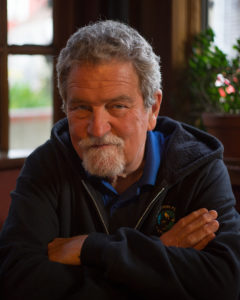 PROVINCETOWN — It is true that Provincetown was incorporated in 1727, but it was not much of a town then — more like an outpost. It really wasn’t until the early 19th century that the town began to develop, with the growth of fishing and whaling activities. And one of the major components of this growth, beginning roughly mid-century, was the arrival of the Portuguese.
PROVINCETOWN — It is true that Provincetown was incorporated in 1727, but it was not much of a town then — more like an outpost. It really wasn’t until the early 19th century that the town began to develop, with the growth of fishing and whaling activities. And one of the major components of this growth, beginning roughly mid-century, was the arrival of the Portuguese.
As the town grew, so did its Portuguese component. Robert Rocha, of the New Bedford Whaling Museum, reports that the census of 1855 tallied 77 Portuguese — all men. (Apparently there was a citizenship question back then.) This represented just 2.5 percent of the 3,096 people in town. By 1895, 40 years later, the number of Portuguese in town was almost 1,000 men, women, and children: fully 21 percent of the total population of 4,555. Other sources say there were 2,000 Portuguese in town in 1896, but the point is made: they were a force.
Almost all came from the Azores at first, and almost all came for the whaling, and then the fishing, which they quickly came to dominate. Their impact must have been profound. They brought with them (more or less) the Catholic Church, their cuisine, their Southern European attitudes and mores. They mostly settled in the West End of town. Mary Heaton Vorse (Time and the Town, 1942) described them as “island people”:
“Up in the honeycomb of back streets to the westward there is an almost unbroken Portuguese colony, where many an old man and woman speak but little English, and dark-skinned beautiful children line the streets.”
The Yankee contingent had to move over and accommodate these newcomers. Was this a peaceful phenomenon? Was immigration as accepted then as it is discouraged now? I am sure it was complicated. The Ku Klux Klan did have a resurgence on the Cape and in town back in the 1920s: a cross was burned on the lawn of the Catholic Church. I am told that the creation of the local chapter of the Knights of Columbus was a direct response. But Portuguese immigration continued and even increased into the 20th century.
What was it like to be Portuguese in Provincetown in the late 19th and early 20th centuries? I have talked with quite a few of the descendants of these “island people.” Their answer: it was about community, neighborhood, family (big families!), church. I heard about holidays (the door was always open to visitors — and they showed up), feasts (that bacalhau dish, kale soup, linguiça), marriages (somebody was always getting married, and he or she or he and she were probably related to you), and cousins: dozens of cousins — everybody was your cousin, and everybody else was an uncle or aunt, and if you were a kid in town back then and you cursed in the street or lit up a cigarette, a full quarter of the town’s residents was authorized to whack you upside the head. Community. Sweet community.
But what about today? That community is gone. Many of the people are still here, but the days when the kids of Conant Street were their own gang are gone. There is no “Portuguese colony,” and that “honeycomb of back streets” is all condo-ed up and mostly seasonal. All those community schools and even the high school have closed. Almost all the graduates have emigrated, even as their ancestors immigrated. They may come back to visit, and when they do, they celebrate what they had, or almost had, or remember hearing about. The why and the wherefore of all this is a complex of economic and social factors, all too familiar, not for discussion at this time.
Is it even proper to inquire about the status of a given ethnic group? What if I asked how many African Americans there are in town? Jews? Muslims? Hispanics? I think not. But what if I asked how many Jamaicans or Eastern Europeans are in town? These might be legitimate questions, because both these groups have brought enormous cultural and economic influences with them. So did the Portuguese. You can still feel it.
Each year I observe with irony that there are far more Portuguese in the annual Portuguese Festival parade than there are Portuguese left in Provincetown. But many still live among us, holding onto bits of the past with pride. I am glad to live even in the pale shadow of a grand culture of “island people,” and I celebrate them.



